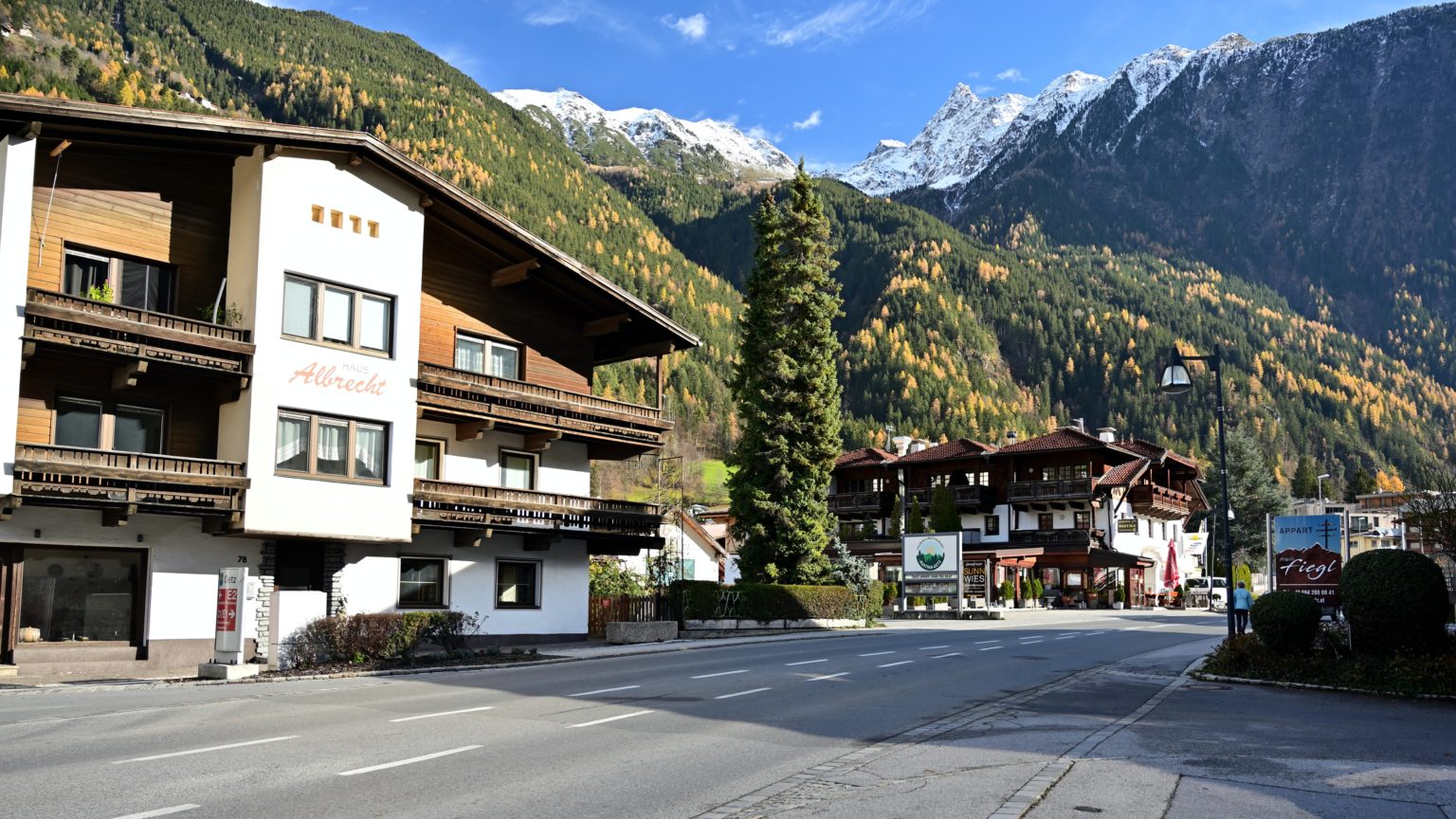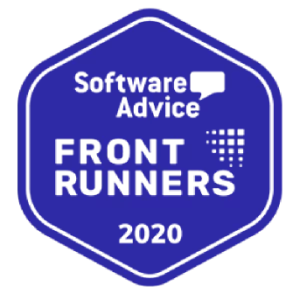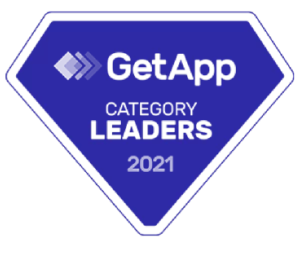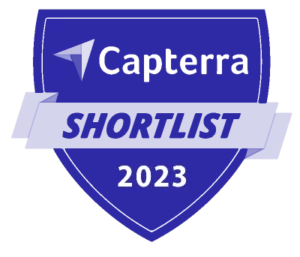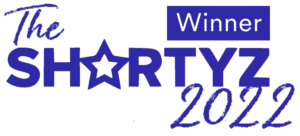“You don’t see hotels choosing vacation rental technology. They’re not making that kind of mistake. There’s vacation rental tech, and then there’s hotel industry tech. They’re vastly different,” says Terry Whyte, aka the Vacation Rental Software Guy.
And with more than 30 years of property management experience, he should know.
As Terry warns, if you’re looking for your first property management software (PMS), there’s no point investing in one that’s wrong for your industry. Or packed with expensive features you’ll never use.
But with so many options available, how can you choose the best one? What do vacation rentals need compared to hotels? And how does the tech vary by industry?
We get it. That’s why in this piece, we’ve outlined:
- What rental managers need to know about the future of the vacation rental and hotel industry
- Key differences between vacation rental management and hotel management
- Key differences between vacation rental software and hotel software, and how to choose the best platform.
The future of the vacation rental and hotel industries
Let’s take a look at the need-to-know trends within the market right now, so you can choose your Airbnb management software with the clearest view of what’s on the horizon.
Hotel standards for vacation rentals
The biggest trend right now is the convergence of the hotel and short-term rental industries. Despite their major differences (more on these below), the two are becoming more similar in some aspects.
Notably, vacation rental guests increasingly expect hotel standards—and want hotels to provide rental-style individuality and friendliness.
Witness the success of companies like Sonder, which offer more in the way of hotel-style service, but with vacation rental-style apartments and properties. Vacation rental guest expectations are rising fast, says Terry, who, as well as running The Vacation Rental Software Guy and consulting for other vacation rental management companies, also runs a portfolio of properties under his Anna Maria Island Beach Rentals brand.
“As the industry goes forward, we’re going to see not only the overlap but also comparisons between hotels and vacation rentals,” he explains. “What hotels do well, their standards…for us in the vacation rental industry that’s going to be our biggest challenge going forward.”
Terry says that the pressure on vacation rentals to offer excellent standards will grow. As a result, hosts will need to lean on powerful tech even more.
He says, “All the amenities… the standards are going to have to be more in line with a hotel; a consistent standard in the same way the hotel industry is able to achieve.”
Longer stays and pets
Research by Hostfully has found that vacation rental guests are staying in properties for much longer than in 2019. This phenomenon comes as a result of more people transitioning from office work to remote working.
As a result, more remote properties are becoming more popular (as long as they have WiFi), with fewer people needing to be close to busy urban centers to work.
Airbnb research shows “Millions of workers–and their families–are no longer tethered to a physical office.” A point reinforced by a Gartner study that shows “The share of knowledge workers working remotely nearly doubled between 2019 and 2021.”
Airbnb adds that “The remote work revolution has particular promise for smaller cities and rural communities.” This is good news for vacation rental owners, who can capitalize on the trend to attract guests for longer stays even away from the traditional urban centers.
Similarly, more guests (especially these remote workers) are now traveling with their pets and families. As a result, rentals that allow pets and younger children will become more popular.

Source: Hostfully.com
Tech-enabled stays
Terry also explains that the opportunity (and need) for vacation rentals to harness the power of technology has never been greater. That’s why using specialized software is so important.
As standards rise and technology becomes ever more important, vacation rental managers will need to leverage the best software in order to compete.
“Hotel technology does not really work well with vacation rentals,” says Terry. “And vacation rentals will never be the best they can be without maximizing their tech stack and using the best technology on the market. And your PMS is the core of your entire stack.”
What’s more, while vacation rental management companies (VRMCs) might have struggled due to lack of time or funds to develop their own software (in contrast to larger hotels), Terry feels that this is no longer a hindrance, but a help.
That’s because the off-the-shelf tech solutions available are really strong right now.
“The days of proprietary software, where you develop your own, are over, I think. There are just too many good solutions out there,” he explains. “I don’t think people are even going to want to build it. The solutions are already there.”

Source: Hostfully.com
Vacation rental management vs. hotel management – key differences
But what are the major differences between vacation rentals and hotels? And what should you be aware of when considering a VRMC-specific platform? Here are some key factors.

Fewer (if any) staff and no front desk
In comparison to hotels, vacation rentals generally operate as stand-alone properties without an on-site team of staff. Very few vacation rentals have a front desk, and an increasing number have no staff physically present at all, even at check-in and check-out.
Instead, guests can check in and provide their ID and details digitally, and communicate with their host via smartphone text, email, or app message. They come and go using a smart lock or keypad, don’t expect room service or daily cleaning, and rarely need to see a manager in person.

Source: August.com
No concierge
Similarly, vacation rentals don’t have concierge desks or staff waiting on hand to answer questions. Instead, guests can order equipment and extra amenities via an app or by messaging the host.
Rather than asking a staff member in person, guests can get local recommendations for restaurants or nearby services from a digital guidebook, which is sent in advance via an automated message.
Entire property booked per stay
Vacation rentals typically include the entire property per stay, whether you’re renting out a studio apartment for one person or a huge house for a big family.
This means that rentals need to ensure security and ease of use of the property (so that the guests know how to use and maintain everything safely). Vacation rental hosts also need to keep track of factors like noise levels to avoid complaints from neighbors.
Specialized booking channels
Vacation rentals tend to find many of their guests through specialized booking channels like online travel agencies (OTAs). Some hotels do list on vacation rental sites but tend to be studio-style, smaller boutiques, or aparthotels.
Vacation rental sites also tend to showcase “home from home” places with a kitchen and private lounging space, as opposed to hotel rooms with a private bed and bathroom, but public communal spaces.
Vacation rental listing sites typically enable guests to search by property type and amenities such as a kitchen or washing machine, in contrast to typical hotel websites.
Individuality over standardization
People looking for vacation rental bookings tend to look for properties with a more individual style.
Of course, this doesn’t mean vacation rentals have lower-standard facilities or poor service. But it does mean that the individual design of the host or property can be quirkier than you might expect from a typical cookie-cutter hotel with identical rooms.
Some boutique hotels offer a variety of designs, but even these will be more standardized than a vacation rental, which can get away with a more individual style of space than a hotel.
Relationships and guest reviews are more important
Hotels typically have far more guests who come and go more often than the typical vacation rental. Similarly, while hotel brands may spend big on mass marketing and campaign strategies, vacation rentals depend more on personal relationships and reviews.
Many vacation rental guests will look for and appreciate a more personal approach. They also want to communicate directly with their hosts, in comparison to hotel managers or faceless, global brands.
Even if you manage multiple rentals and don’t deal with guests directly, you’ll want to take a professional-but-personal tone in messages, leave personalized treats, and work to ensure that guests leave detailed reviews that build up trust and rapport with potential future guests.
Building great relationships with guests also helps to secure repeat, direct bookings. These boost occupancy rates and guest satisfaction and save you money on OTA fees.
Closer owner relationships
The larger size and hierarchical structure of hotels means that hotel staff may be far more removed from the hotel owner compared to vacation rental managers and owners.
In contrast, many vacation rental businesses work by renting out properties owned by individual homeowners. In this case, managers must build a good relationship with vacation rental owners and find new owners to expand their portfolio. They also have to give regular updates on business and investment returns.
In this type of business model, each property almost works as its own micro-business, and managers must have a reporting tool that makes it easy to provide this level of detail.
Vacation rental software vs. hotel software – key differences
Terry says, “I’ve never seen a hotel platform that can handle vacation rental inventory,” but hotel-centric PMSs tend to have a “vastly superior customer relationship management (CRM).”
Choosing a vacation-rental specialist PMS is crucial, he says, because a hotel PMS is definitely vastly different from that of a hotel-centric platform.
Here’s how they differ.
Daily operations

Source: Hostfully.com
| Vacation rental software must be / enable… | Hotel software must be / enable… | |
| Distribution | Vacation rental-specialist platforms and more niche sites. | Hotel-specialist platforms and larger sites. |
| Units | Multiple, stand-alone properties. | Multiple rooms in one building. |
| Housekeeping | Remote, smaller, often outsourced team. | On-site, larger in-house team. |
| Owner management | Easy and regular updates and reporting for multiple owners. May include separate owner portals/areas. | Reports generated by managers, and perhaps an in-house reporting team, for a single owner. |
| Payment processing | 100% digital, online, remote, and smartphone-based. | Apart from the initial booking, payments tend to be on-site and made by card. |
| Guest booking management | Close relationship building, and easy, smartphone communication. Digital pipeline to enable better understanding of guests. | Streamlined communication that may be more automated and perhaps less personal. |
In contrast to hotels that may be managing large teams of staff and hundreds of on-site check-ins, the day-to-day management of a vacation rental will look very different.
You’ll need software that’s suited to:
- Channel management on specialized platforms, rather than hotel-centric sites. Channel diversification is centrally important to successful scaling. You’ll want a PMS that connects to vacation rental specialists like Airbnb, Vrbo, and Booking.com, as well as much more niche platforms.
- Keeping track of bookings across multiple properties, rather than individual rooms. This means you’ll need a tool with a multi-calendar view feature to avoid double bookings.
- Remote housekeeping management, rather than on-site team access coordination. You’ll want a tool that enables remote staff coordination and gives cleaners easy and temporary access to your properties–for example with temporary smart lock access codes–in contrast to in-house, on-site hotel cleaning teams who may have constant access.
- Owner management and reporting. Vacation rental property managers are likely to be communicating with your property’s owners regularly, or searching for new owners to add to their books if you’re scaling. You need a tool that makes this easier. For example, Hostfully enables managers to create and share regular financial reports and statements easily. By contrast, this isn’t something hotels need to do, so the tech lacks these functions.
- Online payment processing for on-the-spot upsells and direct booking payments, as well as security deposits. Unlike hotels that might take payment for bookings or upsells via a point-of-sale card machine, vacation rentals need powerful and secure online processing. Vacation rentals are also more likely to take security deposits than hotels, so you need a way to manage it all
- Booking pipeline to understand individual guests better. In contrast to larger hotels that may have several hotel rooms available and don’t need to build such strong relationships with guests, vacation rental hosts want to see where their guests are in their booking journey, request payments, or place a hold on a property. A booking pipeline feature, such as that offered by Hostfully, is crucial here.
Guest communication

Source: Hostfully.com
| Vacation rental software must be / enable… | Hotel software must be / enable… | |
| Guest communication | Digital, remote, via smartphone. Largely automated due to having less staff. | Staff or concierge teams at a front desk or reception area. |
| Mobile app | On-the-go, fast management for a remote or smaller team. | Nice extra. Not necessarily needed as staff are mainly on-site. |
| Local insights and insider tips | Digital, remote, smartphone-based, via interactive guidebooks. | May not be needed due to on-site staff, reception desk or concierge. |
| Upsells | Available digitally, with online payment processing and upsell tool integrations. | May appear in the room via brochure. Payments taken at front desk. |
| Review requests | Sent via automated message with links to online websites, for digital reviews only. Need for review templates. | Requested on paper in the room, via a tablet, or in-person at the front desk on check-out. |
| Guest data management | Managed digitally via smartphone and background check software. Email addresses collected digitally on booking or check-in. | Managed via the front desk on check-in. Email addresses may be taken in person or via a paper form. |
Without a front desk or on-site concierge service, vacation rental guest experience tools are central when ensuring excellent communication. This means finding a PMS that has:
- Automated messaging that sends guests all the information they need at the right time, either pre-scheduled or based on a trigger, instead of dealing with guests at a front desk in person, as hotels tend to.
- A mobile app for on-the-go messaging, so you never miss an inquiry or leave guests hanging without someone to ask.
- Digital guidebooks that offer in-room help, local recommendations, and insider tips. A digital shows them everything from how to work the coffee machine, the best local taxi service, and where to go for the tastiest food—without needing an in-person hotel concierge.
- Upsell services. Without on-site staff, any extra guest requests must be catered to digitally and should be accessible via smartphone. For example, Hostfully integrates with tools that enable baggage storage, baby equipment hire, day trips, and taxi hire.
- Automated review requests upon check-out, with direct links to where you’d like your guests to leave their reviews. Vacation rental PMSs offer this function, unlike paper feedback forms and guest books in hotels that may never get filled in or seen.
- Guest data management – For vacation rentals that rely more than hotels on individual relationships, a PMS that collects and helps you leverage guest data can help build rapport, run marketing campaigns, and enable easy direct bookings for previous guests.
Integrated tech solutions

Source: Minut.com
| Vacation rental software must be / enable… | Hotel software must be / enable… | |
| Guest access | Smart locks with PIN codes set up remotely. Codes are set up and expire automatically. | Card, fob, or key access. In-person management at a front desk or reception. |
| Smart devices and room monitoring | Remote noise, CO2, water, and smoke monitoring—without infringing on guest privacy. | An added in-room bonus. Not necessarily needed as staff are on-site at all times. |
| Guest security | Digital checks via smartphone for background, criminal records, and past reviews. | Front desk checks by staff. CCTV cameras in public spaces. Possible security staff on site. |
| Guest booking | A direct booking website designed for vacation rentals, enabling whole-property booking, online payment, and availability sync with other booking channels. | Individual room bookings, with room availability, and optional online payment. Phone call booking system and over-the-phone or online payment. |
| Accounting | No dedicated accountant. Financial operations simplified and performed online via integrations with dedicated tools. | Financial accounting suited to hotels, perhaps for a dedicated accountant or in-house accounting team |
| API access | Reliable, real-time sync with third-party tools that can connect to your central PMS system easily. | Useful but not necessarily needed. May need to work with in-house, own-brand tools. |
With less staff and a more remote management style, vacation rental managers are more reliant on technology to keep operations working smoothly.
This is in contrast to most hotels, which have on-site staff who can keep an eye on security and a front desk reception team that verifies a guest’s ID and other documents on check-in.
So VRMs need solutions that include:
- Smart locks and remote digital access, so you can keep track of who’s coming and going in your rental remotely. You can change PIN codes digitally and check if the door is locked. You can also set up alarms with digital alerts. This replaces physical keys and the need to have on-site security.
- Smart device management to keep track of noise, damage, disturbances, or unauthorized gatherings. For example, noise-monitoring devices measure decibel levels and CO2 levels. This lets you keep watch over what’s happening in your rental without infringing on guest privacy. This replaces the on-site staff and security guards of hotels.
- Guest security features, which digitally check guest backgrounds, criminal records, and previous guest reviews. This replaces long waits at hotel reception desks while guests wait for staff to manually check ID.
- Direct booking vacation rental website with an online booking engine and the capability to show real-time availability, and take payments. Many major hotel brands will have their own websites centrally managed by a separate tech team. In contrast, vacation rental hosts need an easy way to build their own site to boost their brand and save on OTA fees. A good PMS will make this possible by including a website builder and direct booking engine
- Accounting platform. With no in-house accountant, rental hosts need a tool that can simplify financial operations, so they can easily comply with income tax law and financial regulations.
- API access. Choosing a PMS with an open API makes it easy to connect with a huge range of complementary software, giving vacation rental hosts incredible functionality without having to build your own platform or in-house systems (as some larger hotels might).

Source: Hostfully.com
Automation
| Hotel software must be / enable… | Hotel software must be / enable… | |
| Calendar syncing | Whole-property bookings, synced from multiple OTAs, platforms, and direct booking sites. | Individual room bookings, synced from multiple, hotel-specific platforms. |
| Dynamic pricing | Automated via specialized tools, rather than a revenue or rates manager. Suited to the vacation rental market. | Automated but also allowing for tweaking by a dedicated in-house rate or revenue management team. Suited to the hotel market. |
With a leaner team, as well as a more remote and tech-focused operation than hotels, vacation rentals can gain an edge by “outsourcing” repetitive or manual tasks to technology rather than people.
This might include:
- Automated syncing of bookings between platforms. These update your central calendar, and trigger important messages or housekeeping organization automatically, with no extra work from you.
- Automated dynamic pricing. No in-house revenue or occupancy managers? No problem. Vacation rental managers can automate rate changes and ensure competitiveness with dynamic pricing tools and revenue managers. Hostfully integrates with Wheelhouse, DPGO, PriceLabs, Beyond, NightPricer, and Rented for this precise reason.

Source: Hostfully.com
Insurance
| Vacation rental software | Hotel software | |
| Insurance policies | Integrated via external, vacation rental-specialist tools. Dedicated vacation rental policies. Guests will typically know it’s there in case something goes wrong. | Hotel-specialist policies. Not necessarily integrated into the booking system. Guests may not see it when booking. |
| Damage waivers | May be taken separately. Managed via vacation rental-specialist companies. Applied per entire-property booking. | Not typically used. |
Insurance for vacation rentals can look very different in comparison to hotels. Effectively functioning as individual homes, but with public liability risks, vacation rentals have very particular insurance needs distinct from hotels.
Some property managers also prefer to take damage waiver payments, which a hotel is more unlikely to ever ask of guests.
As a result, vacation rental-specific PMSs need to have integrations with suitable insurance providers. They also need to manage and take payment for damage waiver deposits.
Vacation rental software vs hotel software: choose the right tech for your business
Business models differ greatly within the hospitality industry and what works for hotels won’t work for vacation rentals. The same goes for the tech systems both rely on.
Vacation rental software enables more remote management and communication via automation as teams are usually smaller and budgets tighter. Also, whole-property booking for multiple property types, and dealing with outsourced contractors and multiple owners.
By contrast, hotel software is designed to handle individual reservations for similar rooms, internal reporting, and larger, on-site teams.
So if you’re in vacation rentals, it’s crucial to pick the right, specialized PMS for your business to avoid paying for features you’ll never use—or having to switch further down the line.
What’s more, says Terry, “Property managers are just crying out for all-in-one PMSs. They’re tired of needing nine, 10, 50 different dashboards to log into separately just to get through the day… The big winners in the industry will be PMSs that do more on a single platform, so they can offer hotel-level standards. That’s your opportunity to separate yourself from the competition.”
If that sounds like the solution for you, look no further than Hostfully. It’s got all the features and integrations you need to run a lean vacation rental operation.
Frequently asked questions about vacation rental management software and hotel software
What kinds of software do vacation rental companies use?
Vacation rental companies use property management systems (PMSs) like Hostfully that are tailored to their needs. These include remote communication, whole property bookings, listings on specialist vacation rental channels, and strong relationships with guests.
Which software is best for vacation rental management?
The best software for vacation rental management is one that responds best to the needs of your business. For example, a PMS that can handle the daily operations of VRMCs like varied inventory, whole-property bookings, multiple owner management and reporting, payment processing, guest communication, and more.
Which software is used in the hotel industry?
The hotel industry uses hotel management software that is specially designed for its needs, as opposed to other hospitality and accommodation industry types (such as vacation rentals or campsites). In contrast to vacation rentals, hoteliers typically need software to manage more homogenous inventory, large on-site teams, and housekeeping, guest requests, front desk and concierge tasks, etc.

